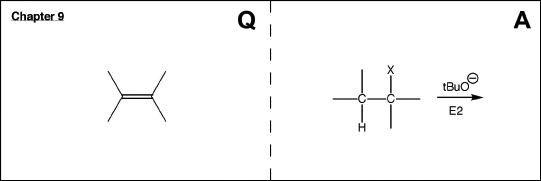[2008-01-08] Iverson first semester organic chemistry flashcards
I recently had the pleasure of working as a teaching assistant in Dr. Brent Iverson's first-semester organic chemistry class at the University of Texas at Austin. I also had the pleasure of taking Dr. Iverson's o-chem classes when I was an undergraduate at that institution, and, having experienced his class from both sides of the gradebook, I will cheerfully attest, as have many others, that Dr. Iverson may actually be the best organic chemistry teacher in the world.
Organic chemistry is a difficult subject for most people, I think, because it requires so many different mental skills. First among these is the ability to visualize relatively complex objects interacting in three-dimensional space, which is rare enough in itself. Add to that the logical-problem solving ability required in all science courses, the linguistic intuition to grasp the rather complex grammar that governs the nomenclature of organic molecules, and the memory to recall what conditions are required for which reactions and what transformations are effected, and organic chemistry very quickly becomes a truly daunting subject. Many otherwise-promising pre-meds are doomed by it, and many more scrape through with hard work and determination and hundreds of hours of rote memorization. Only a few in a class of several hundred will achieve the understanding necessary for proficiency. Rote memorization, it should go without saying, is not the way to do this.
However, because organic chemistry is such a vast subject (and one that grows vaster with each passing month), there are many, many more useful and fundamental reactions to be learned than can be studied in sufficient detail over the course of a semester or even a year. Therefore, in order to achieve any skill at all in designing syntheses, in anything like a reasonable timeframe, some reactions must be memorized rather than being fully understood. A responsible organic chemistry teacher publishes a list of those reactions which are expected of students and sticks to it. The one Dr. Iverson published for his Fall 2007 course is here.

When I was a teaching assistant in Dr. Iverson's class, I encouraged my students to prepare for synthesis problems by drilling these reactions using flashcards with the generic product on the question side, and the generic starting material, reagents, and reaction conditions on the answer side. Students, in keeping with Dr. Corey's ideas on retrosynthesis, were taught to solve synthesis problems by working backwards from the product, and thus the critical skill in solving these problems was recognizing features of the target molecules ("synthons") that would result from known reactions and starting materials ("synthetic equivalents"). To make things easier, I published a set of such flashcards in .PDF format. These printable flashcards use the vertical folding design popularized by flashcard exchange and used also in my blank flashcard template.